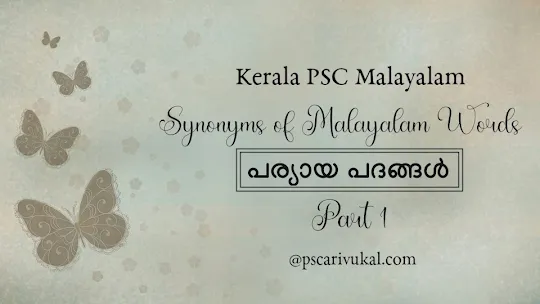N. Kumaranasan (1873 – 1924)
N. Kumaran Asan was one of the modern triumvirate poets of Kerala. He was a great philosopher-poet and social reformer. He was also one of the foremost disciples of Sree Narayana Guru.
Kumaranasan revolutionized Malayalam Poetry and influenced the Kerala renaissance movement to a greater extent. His works reflect the history of the struggle against the caste system as well as the history of development in Kerala.
Epithets
- തൂലിക പടവാളാക്കിയ കവി,
- Chinnaswami (by Dr. Palpu),
- Sneha Gayakan (സ്നേഹ ഗായകൻ),
- Ashayagambhiran (ആശയ ഗംഭീരൻ),
- Divya kokilam (by Leelavathy),
- വിപ്ലവത്തിന്റെ ശുക്രനക്ഷത്രം (by Prof. Joseph Mundassery),
- Son of Honor (മാനസപുത്രൻ) to Dr. Palpu,
- Poet of Revolution & Poet of Renaissance (by Thayat Sankaran),
- Mahakavi Kumaran Asan (Mahakavi – by Prince of Wales, Madras University in 1922).
Timeline of N. Kumaranasan's Life Events
Birth
- Malayalam Date – 1048 മേടം 1.
- Place – Achenchuthengu Taluk, Kayikkara (Thiruvananthapuram).
- House Name – Thommanvilakam (തൊമ്മൻവിളാകം).
- Father – Narayanan Perungudi (നാരായണൻ പെരുങ്ങാടി).
- Mother – Kaliamma/Kochupennu (കാളിയമ്മ/കൊച്ചുപെണ്ണ്).
- Childhood name – Kumaru (കുമാരു).
Early Education
Teachers- Thundathil Perumal Asan (തുണ്ടത്തിൽ പെരുമാൾ ആശാൻ),
- In Sanskrit – Udayankuzhi Kochuraman Vaidyar (ഉടയാൻ കുഴിയിൽ കൊച്ചുരാമൻ വൈദ്യർ),
- In Poetry– Manamboor Govindan Asan (മനമ്പൂർ ഗോവിന്ദൻ ആശാൻ).
As a Teacher
- Joined as Teacher at Chakkanvilakam Primary School at the age of 14.
Employment
- Worked as an accountant for a local wholesale merchant.
Sree Narayana Guru
- Met Sree Narayana Guru.
- Became disciple of Sree Narayana Guru.
- At Aruvippuram – continued study of Sanskrit & Tamil.
- Mastered Yoga, Vedic, Saivite & Advaita philosophies.
- Met Dr. Palpu.
Bangalore
- Joined Sri Chamarajendra Samskrita College with the help of Dr. Palpu (Studied Nyayashastra).
Madras & Calcutta
- Stayed a few months in Madras for private study.
- Joined Central Hindu College (Calcutta), studied Tharkasastra & English.
- Stayed with a Brahmin family, later discontinued studies.
Back to Aruvippuram
SNDP
- Formation of Sree Narayana Dharma Paripalana Yogam (1903).
- Became First General Secretary of the S.N.D.P. (until 1919).
- Foundation and Editorship of Malayalam literary journal and the mouthpiece of SNDP, Vivekodayam.
Sree Moolam Popular Assembly
- Elected as Member of the Legislative body of the Travancore state.
- First Poet to become a member of Sree Moolam Popular Assembly.
Marriage
- At the age of 45.
- Wife – Bhanumathiamma (ഭാനുമതിയമ്മ), Cousin of Dr. Palpu (daughter of Thachakudy Kumaran, younger brother of Dr. P. Palpu’s father).
- Children – Sudhakaran & Prabahakaran.
- The marriage lasted only for 6 years until his death.
Resigned From SNDP.
Editor of "Pratibha"
Manager of Advaitashram, Aluva.
Union Tile Works
- Started a clay tile factory at Aluva.
- Later discarded the project due to pollution and handed over the land to SNDP
Settled at Thonnakkal (തോന്നയ്ക്കൽ), Trivandrum.
Sharda Book Depot (Printing Press)
- First book printed and published from Sarada Book Depot – Subrahmanya Shatakam
Title of Mahakavi
- Prince of Wales presented the title at the Madras University along with pattu and vala.
- Only Malayalam Poet to become Mahakavi without writing a Mahakaavyam.
Meeting With Tagore
- Met Tagore during Sivgairi Visit.
- Translated dialogue between Sree Narayana Guru & Tagore.
Election
- Contested in Assembly Election in Quilon.
- Lost to Sankara Menon.
Death
- Age – 51.
- Place – Pallana River South of Alleppey.
- Redmeer Boat Accident.
- Place renamed as 'Kumarakodi'.
Famous Works
- Poems – Leela (ലീല), Nalini (നളിനി), Pushpakavadi (പുഷ്പവാടി), Chandalabhikshuki (ചണ്ഡാലഭിക്ഷുകി), Chinthavishtayaya Sitha (ചിന്താവിഷ്ടയായ സീത), Veenapoovu (വീണപൂവ്), Karuna (കരുണ), Duravastha (ദുരവസ്ഥ), Shankara Shathakam, Bhaktha Vilapam, Kalakanda geetham.
- Drama – Vichitravijayam (വിചിത്ര വിജയം) & Mrityunjayam
- Translation – പ്രബോധ ചന്ദ്രോദയം, Sribuddha Charitham.
📝Read More: Notable Works of Kumaranasan
- Poems – Leela (ലീല), Nalini (നളിനി), Pushpakavadi (പുഷ്പവാടി), Chandalabhikshuki (ചണ്ഡാലഭിക്ഷുകി), Chinthavishtayaya Sitha (ചിന്താവിഷ്ടയായ സീത), Veenapoovu (വീണപൂവ്), Karuna (കരുണ), Duravastha (ദുരവസ്ഥ), Shankara Shathakam, Bhaktha Vilapam, Kalakanda geetham.
- Drama – Vichitravijayam (വിചിത്ര വിജയം) & Mrityunjayam
- Translation – പ്രബോധ ചന്ദ്രോദയം, Sribuddha Charitham.
📝Read More: Notable Works of Kumaranasan
Famous Quotes
- 'സ്വാതന്ത്ര്യം തന്നെ ജീവിതം സ്വാതന്ത്ര്യം തന്നെ അമൃതം.'
- 'മാറ്റുവിൻ ചട്ടങ്ങളെ സ്വയമല്ലെങ്കിൽമാറ്റുമതുകളീ നിങ്ങളെത്താൻ.'
- 'സ്നേഹമാണഖിലസാരമൂഴിയിൽ സ്നേഹസാരമിഹ സത്യമേകമാം.'
- 'ഒരുവേള പഴക്കമേറിയാൽ ഇരുളും മെല്ലെ വെളിച്ചമായി വരും.'
- 'ഹ! ഇവിടമാണാത്മ വിദ്യാലയം.'
- 'അന്തമില്ലാതുള്ളോരാഴത്തിലേക്കിതാ ഹന്ത! താഴുന്നൂ കഷ്ടം.'
- 'ദുഃഖം കാണുന്നു സുഖകാലത്തും മർത്യൻ ദുഃഖകാലത്തും സുഖം കാണുന്നു.'
- 'സ്ഥിരതയുമില്ലത്തിനിന്ദ്യമേ, നരത്വം.'
Statues, Institutes & Memorials
- Memorial – Thonnakkal (Trivandrum).
- Kumaranasan National Institute of Culture (KANIC, Thonnakkal).
- Founded in 1958.
- Consists of archives, a museum, and a publications house.
- Kumaranasan Statue – Palayam (Trivandrum).
- Near Kerala University Campus at Asan Square.
- School – Asan Memorial Senior Secondary School (CBSE school, under Asan Memorial Association).
Books & Films on Kumaranasan
- Asan Kavitha Oru Patanam – Prof. Joseph Mundasseri.
- Asante Seethakavyam – Sukumar Azhikkode.
- Kumaranasante Kavya Prapancham – M.K. Sanu.
- Asanthiyil Ninnum Shanthiyilekku – M.K. Sanu.
- Mruthyunjayam Kavyajeevitham – M.K. Sanu (Asan Award,1997)
- Kaalam Pinneyum Kazhinju (Film) – K.P. Kumaran (Director).
- Title – from "Karuna."
Reference:
📝 SideNotes:
- Modern triumvirate poets of Kerala – Kumaranasan, Ulloor & Vallathol.
- Asan Memorial Poetry Prize was instituted in the year – 1985.
- Kumaranasan's poem 'Veenapoovu' was published in 'Mitavadi' – 1907.
- First Malayali Poet to appear on Indian postal stamps – Kumaranasan (April 12, 1973, 100th Birth Anniversary).
- Kumaranasan wrote "Prarodan" with condolences on whose death – A.R. Rajaraja Varma.
- About whom Kumarasan wrote the lines 'ഭവാന്റെ ഗുളികചെപ്പേന്തുമേ ശിഷ്യരും' – A.R. Rajaraja Varma.




Post a Comment
Post a Comment